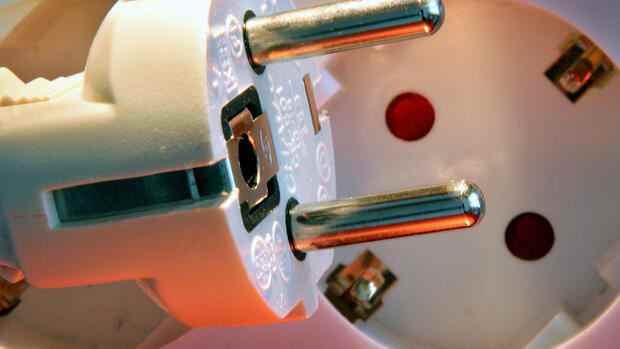Cheap electricity providers lure with low prices. However, it is not uncommon for this to end to the detriment of the consumer.
(Photo: dapd)
Dusseldorf The creditors of the insolvent electricity provider Bayerische Energieversorgungsgesellschaft (BEV) will probably never see a large part of their money again. After the bankruptcy of the cheap electricity provider, over 300,000 claims totaling 512 million euros were received. Two years later, it is clear that the average BEV customer can only expect a mini-repayment.
“Despite all previous successes in realizing insolvency assets and in clarifying existing claims and liabilities, there is unfortunately no prospect of above-average satisfaction of creditors in this procedure,” said insolvency administrator Axel Bierbach on Tuesday.
In view of the liabilities of just under 190 million euros to date and claims that are still to be recognized, the insolvency administrator is therefore only expecting a very low rate in the low single-digit percentage range.
The Bavarian electricity discounter filed for bankruptcy in January 2019. Where customers were initially lured with cheap tariffs and juicy bonus payments, disappointment often arose after the first one to two years when the electricity price soared. But more and more customers saw through the model and switched providers.
Top jobs of the day
Find the best jobs now and
be notified by email.
High termination rates ultimately contributed to the bankruptcy of the BEV. However, long before the bankruptcy of the Munich company, there had been a lot of complaints because the monthly basic prices were supposed to be increased by one hundred percent in some cases.
It quickly became clear that financial bottlenecks were probably the reason for the radical price increases. The BEV’s business model no longer worked. The energy supplier only justified its approach with increased electricity prices – before it finally filed for bankruptcy.
Even big believers get nothing
Since then, hundreds of thousands of creditors and customers have been waiting for their money. Among them are power grid operators such as Amprion and Tennet. The big creditors account for almost half of the claims.
For the other half, the Federation of German Consumer Organizations (VZBV) wants to secure at least the bonus decided upon when the contract was signed. Eleven months after the bankruptcy, the VZBV had therefore submitted a model declaratory action to the Munich Higher Regional Court and was found to be right.
The lawsuit was intended to regulate that the bonus was to be granted even if consumers were not supplied with electricity or gas for a full year. The reason for the short delivery was that BEV became insolvent before the end of the one-year period.
According to VZBV, the new customer bonus should also be deducted from the insolvency administrator’s additional claim. Therefore Bierbach appealed against the judgment. Now we have to wait for the decision of the last instance, the Federal Court of Justice in Karlsruhe.
“As long as the model declaratory action, which is currently pending before the Federal Court of Justice, has not been decided, these new customer bonus claims will not be recognized,” Bierbach made clear on Tuesday. They wanted to get in touch with the new customers affected.
Discounters keep falling into bankruptcy
“The entire receivables check was a mammoth task,” said Bierbach. In the whole of Germany there have so far only been a few bankruptcies with so many creditors. The Teldafax bankruptcy, for example, had similar dimensions. The company had built a snowball system for years and in the end postponed its bankruptcy. There remained countless cheated customers and a loss of 500 million euros. The Teldafax case became a beacon for the entire electricity industry.
Since then, discounters have been slipping into bankruptcy again and again – especially in the current record-breaking electricity price rallies on the stock exchange. Otima Energie AG, Smiling Green Energy and Lition Energie from Berlin are just the latest from a series of bankruptcies in the electricity sector.
As long as the electricity price had not risen, discounters on the market had the advantage of lower procurement costs, unlike, for example, basic suppliers such as the respective municipal utilities. They often buy their electricity several years in advance. In the past few years, however, the price of electricity has skyrocketed. While a megawatt hour in wholesale at the beginning of 2017 cost barely more than 20 euros, last Monday it was over 130 euros.
More: Evergreen: First major electricity provider stops deliveries in certain areas.

